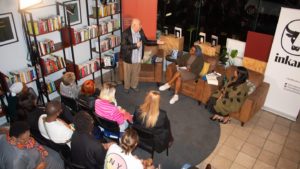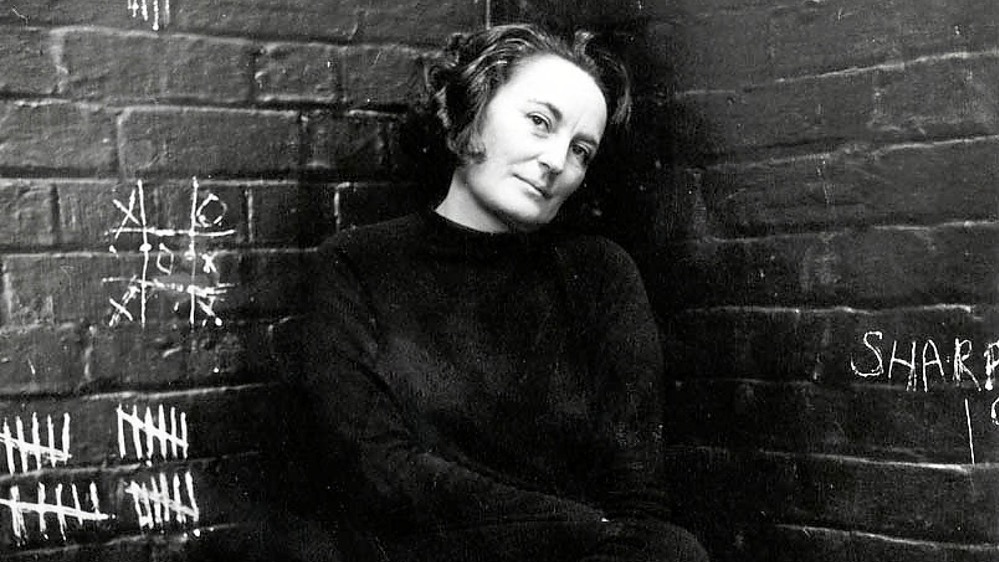May 4 marked the 98th birth anniversary of South African communist militant, journalist and anti-apartheid activist, Ruth First. In commemoration of her life, and the enduring legacy of her work, a collection of essays written by First was launched by Inkani Books and the International Union of Left Publishers (IULP) at The Commune, a Pan-African, community-centered bookshop in Johannesburg on the day.
The book titled Ruth First: Selected Writings features five essays which offer a window into the breadth of First’s radical intellectual and journalistic work—covering the 1955 Women’s March in Pretoria, the structure and workings of the apartheid state in South Africa and the armed struggle against it, her writings on post-colonial states, nationalism, and imperialism, and the shaping of the colonial economy of Mozambique to serve “the needs of capitalist accumulation in Southern Africa.”
The book’s launch was accompanied by a discussion, which featured Dr. Vashna Jagarnath, the director of Pan Africa Today and the deputy general secretary of the Socialist Revolutionary Workers’ Party, and Ronnie Kasrils, a writer and former cabinet minister who served in the liberation movement from 1960 including as a commander of the uMkhonto weSizwe, which was founded by Nelson Mandela and launched an armed struggle against the apartheid regime.
A full house 📚
A launch of Ruth First: Selected Writings#RuthFirst #inkaniBooks #booklaunch pic.twitter.com/ESTYKRaBmG
— theforgejhb (@theforgejhb) May 4, 2023
Introducing First’s works in the collection is an essay by Dr. Jagarnath that traces her life and political activism, and the persecution she faced for it alongside other leaders fighting against apartheid. First was assassinated through a letter bomb at the Eduardo Mondale University in Maputo, Mozambique, on August 17, 1982, at the order of Craig Williamson, a major in the South African police.
She arrived in Mozambique from the UK in 1977, having first joined the British anti-apartheid movement after going into exile from South Africa in 1964. The years leading up to her departure saw First targeted repeatedly by state forces.
She spent her student years organizing and writing, part of a generation of activists including Nelson Mandela. She displayed a “resolute determination to expose the fascist nature of the apartheid state, police brutality, and the economic and structural implications of apartheid laws,” Jagarnath wrote.
Following the brutal repression of the 1946 strike by African mine workers—which saw workers killed and several arrested, including the entire central committee of the Communist Party of South Africa, of which First’s parents had been founding members—First became a key actor in the party.
The 1946 mine workers’ strike took place on the eve of the formal imposition of white supremacist apartheid rule in South Africa. While First knew that “in South Africa, the question of class is also raced,” this would become much more clear after the National Party came to power in 1948.
Importantly, Jagarnath wrote, “The massacre of striking miners at Marikana in 2012 demonstrated that the South African state across colonial, apartheid and post-apartheid eras has been consistently willing to work for the interests of mining capital and that this has not yet been addressed politically.”
“Racialism has overlaid the nature of domination and exploitation and used colored prejudice to obscure techniques of domination. Where privilege can be made to coincide with color, it becomes far more entrenched and unassailable,” First had written in one of the essays in the collection, titled “South Africa Today”.
In “From the Freedom Charter to Armed Struggle,” she detailed the mobilizations against apartheid in the 1950s, including the Freedom Charter which was adopted at the Congress of the People in 1955, which declared that “South Africa belongs to all who live in it, black and white…the people shall govern…the land shall be shared among those who work it…all shall be equal before the law.”
First also wrote about the first Women’s March in 1955, a protest which brought together 1,600 women from all races together in Pretoria to protest apartheid policies like passes for African women, Bantu Education, the Suppression of Communism Act, and the Population Register.
Referring to First’s essay describing the significance of the day and the numerous obstacles that women overcame to reach Pretoria, Kasrils said, “What does it do? Remember to put yourself in the mind of the people reading the New Age paper [in which the essay “Pretoria Conquered by the Women!” was published] at that period of time…[it was] to imbue them with the spirit that we can succeed, that we can overcome apartheid.”

The Nationalist government responded to the Freedom Charter by arresting 156 political leaders, among them First and her husband and fellow activist and lawyer Joe Slovo, and charged them with a “treasonable conspiracy to overthrow the South African government by violence.” The case—which came to be known as the Treason Trial—would end in 1961 with all defendants being acquitted.
Following the Sharpeville Massacre of 1960, which saw the emergence of an armed liberation struggle, a state of emergency was imposed in South Africa and First was “banned,” which effectively cut her off from any political work and writing.
In 1963, she was jailed for 117 days without charge or trial, becoming the first woman to be imprisoned under the apartheid regime’s 90-Day Act. Soon after, Ruth First would be forced to go into exile.
However, she would continue to publish an array of breakthrough texts, expanding the focus of her work to write Libya: The Elusive Revolution (1974) and The Mozambican Miner: A Study in the Export of Labor (1977), excerpts from both of which are included in the collection.
Her work remains vital for left movements not just in South Africa, but around the world. Ruth First stands, Jagarnath wrote, “as a model of communist commitment, a bright beacon burning with passion.”





